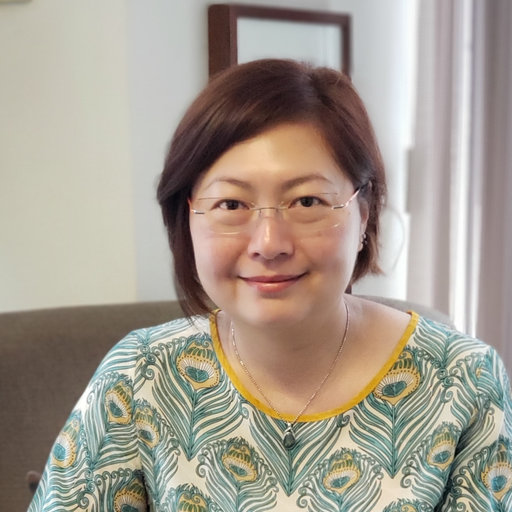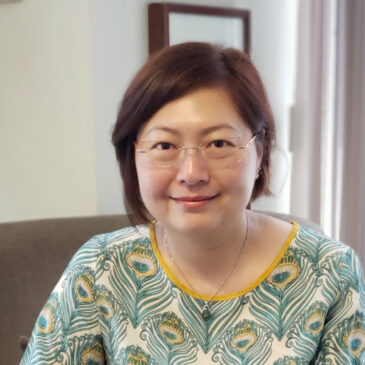Editor’s note: This op-ed was written by Elda Chan, PhD, the Director of St. John’s Cathedral Counselling Service and the Clinical and Research Consultant for the Tung Wah Group of Hospitals’ Integrated Center for Addiction Prevention and Treatment in Hong Kong, as part of this month’s Special Series on Theories of Addiction.
 I first started working in gambling disorders 25 years ago in Melbourne, Australia. The service was and still is funded specifically for gambling disorders and related problems. A few years into the field, I noticed a phenomenon that a large proportion of cases who came to seek treatment had in fact experienced another addictive disorder at the same time or at some other point in their life. These clients reported a similar course of addiction development and manifestations across their addictions. This triggered my interest into searching for a deeper understanding into the nature of addiction. I began researching the addiction science and found very few materials that actually addressed the shared characteristics of addictive behaviour. The only theory that was available to explain the commonality was the bio-psycho-social theory of addiction. This theory had guided my work for a period of time until the birth of the Syndrome Model (Shaffer et al., 2004). The Syndrome Model of addiction challenges the conventional understanding of viewing substance or behavioural addiction as distinctive conditions. Rather, it suggests that there are commonalities in bio-psycho-social antecedents, manifestations, and consequents among behavioural and substance use disorders that reflect an underlying addiction syndrome.
I first started working in gambling disorders 25 years ago in Melbourne, Australia. The service was and still is funded specifically for gambling disorders and related problems. A few years into the field, I noticed a phenomenon that a large proportion of cases who came to seek treatment had in fact experienced another addictive disorder at the same time or at some other point in their life. These clients reported a similar course of addiction development and manifestations across their addictions. This triggered my interest into searching for a deeper understanding into the nature of addiction. I began researching the addiction science and found very few materials that actually addressed the shared characteristics of addictive behaviour. The only theory that was available to explain the commonality was the bio-psycho-social theory of addiction. This theory had guided my work for a period of time until the birth of the Syndrome Model (Shaffer et al., 2004). The Syndrome Model of addiction challenges the conventional understanding of viewing substance or behavioural addiction as distinctive conditions. Rather, it suggests that there are commonalities in bio-psycho-social antecedents, manifestations, and consequents among behavioural and substance use disorders that reflect an underlying addiction syndrome.
“When individuals engage in repeated interactions with a specific object or objects of addiction, and the neurobiological or social consequences of these interactions produce a desirable (i.e., sought-after) subjective shift that is reliable and robust, the premorbid stage of the addiction syndrome emerges” (p.368).
The Syndrome Model believes that there is one addiction syndrome with different expressions (e.g. substance and behavioural use disorders). To me, the Syndrome Model of addiction not only provides a map to treatment planning and delivery, it serves as a foundation for service program design and development. Our society has experienced rapid changes as a result of the evolution of internet technology which has impacted the way we work, learn, communicate, relate, and live. As a by-product, it’s created new forms of addictive behaviour. In June, 2019, WHO confirmed the inclusion of Gaming Disorder into the chapter of Disorder due to Addictive Behaviour in the ICD11 revision (WHO, 2019). This is the second behavioural addiction other than Gambling Disorder formally recognized by established diagnostic manuals. As new diseases emerge, sometimes it is difficult to have additional resources available in a timely response to the situation. The Syndrome Model provides a fundamental and economical way of service design that can address these emerging issues.
The Tung Wah Group of Hospital (TWGHs) Integrated Centre on Addiction Prevention and Treatment (ICAPT) was first developed based on the Syndrome Model. It provides an integrated service model targeting addiction expressions across the substance and behaviour use disorders. Unlike the traditional service model, ICAPT treats all expressions of addiction under one roof. Treatment professionals are equipped with training to understand the shared and distinct characteristics of addiction expressions, and focus the treatment on the individual’s underlying vulnerabilities, their experiences of subjective shifts, and maintenance factors. Treatment outcomes have been rather positive. For example, participants in a short-term residential treatment program reported feeling a strong sense of empathy and the ability to generate insights on their own situation after hearing the experiences from other participants with a different addiction expression. Some had recognized the risks of other forms of addictive behaviour. These experiences not only facilitated the treatment for individual patients, but also reduced the chances of addiction hopping.
The application of the Syndrome Model of addiction in service development however can pose challenges to government policies and agencies. It requires re-thinking how services are structured and making significant changes to service delivery models. Although this integrated model of treatment service has not been adapted into the mainstream service provision, the recognition of the Syndrome Model of addiction will instigate the trend of integration in service delivery. And, I hope the service model of ICAPT can serve as a reference for future service development.
References
Shaffer, H. J., LaPlante, D. A., LaBrie, R. A., Kidman, R. C., Donato, A., & Stanton, M. V. (2004). Toward a syndrome model of addiction: Multiple manifestations, common etiology. Harvard Review of Psychiatry, 12(6), 367-374.
WHO (2019). 6C51 Gaming disorder. Retrieved on 29 January 2020 at https://icd.who.int/browse11/l-m/en#/http://id.who.int/icd/entity/1448597234
Author Bio
Dr. Elda Chan currently works as the Director of St. John’s Cathedral Counselling Service and as the Clinical and Research Consultant for the Tung Wah Group of Hospitals’ Integrated Center for Addiction Prevention and Treatment in Hong Kong. She also provides clinical supervision for students from the Master in Counselling program at University of Hong Kong. Dr. Chan conducts research in areas of mental health and addiction, special education needs, social and education policy, cross-cultural issues and psychology. She has set up a professional body and Certification Board for addiction professionals, the Asia Pacific Association for Addiction Professionals (APAAP) and Asia Pacific Certification Commission for Addiction Professionals (APCCAP). Dr. Chan is an experienced counsellor, researcher and trainer in areas of mental health and addiction, family and couple relationship, student/youth counselling and teacher training.
Funding Sources
Dr. Chan receives a salary from St. John’s Cathedral Counselling Service and the University of Hong Kong, and is a paid consultant for the Tung Wah Group of Hospitals’ Integrated Center for Addiction Prevention and Treatment in Hong Kong.




